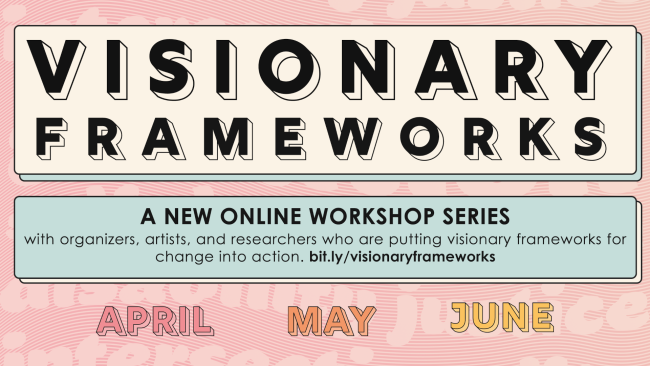Radical Imagination for Racial Justice (RIRJ) is an experimental research and creative strategy that supports artists who are imagining, prototyping and creating new systems in partnership with their communities in public spaces. It centers and invests in the creativity of Black, Indigenous, People of Color (BIPOC) artists to address the root causes of racial injustice and advance racial justice in the United States and its territories. Artists work with Participatory Action Research (PAR) Fellows who are embedded in the expertise of the community where the artistic project is happening to document, interpret, unearth, cultivate and distill themes, ideas, and learnings and bridge these learnings towards actionable policy and systems change.
What is Radical Imagination?
Imagination is defined as the ability to form a mental image of something that is currently not present to the senses, or has never before been wholly perceived in reality. Without it, people are unable to view issues from different perspectives, conjure various solutions to a problem, or construct and employ new narratives. Radical Imagination is not an ability an individual possesses, but rather, it is a collective process in which individuals or groups construct the world as it could be. It is produced through collaboration and the sharing of experiences, stories, ideas, theory, and art, and stems from the recognition that the world can and should be changed.
What is Participatory Action Research?
Participatory Action Research (PAR) comes from people’s need to collect and organize knowledge and information in order to define an issue, problem, action and/or solution. The definitions and framework come from South American social movements, but PAR has happened in countless expressions in communities across the world organizing for social transformation.
PAR stands against the harmful way research has frequently been done “on” or “for” BIPOC communities, queer people, poor people, and people with disabilities. It intentionally seeks to transform this way of doing research. In PAR, people closest to an issue—sometimes in collaboration with people not directly affected by that issue—lead and own the research. They define the research questions, how research is done and the outcomes of the research. The research is designed to support community actions and bring about meaningful, long-term solutions.
This work was supported from 2020 to 2023 by the Surdna Foundation.



